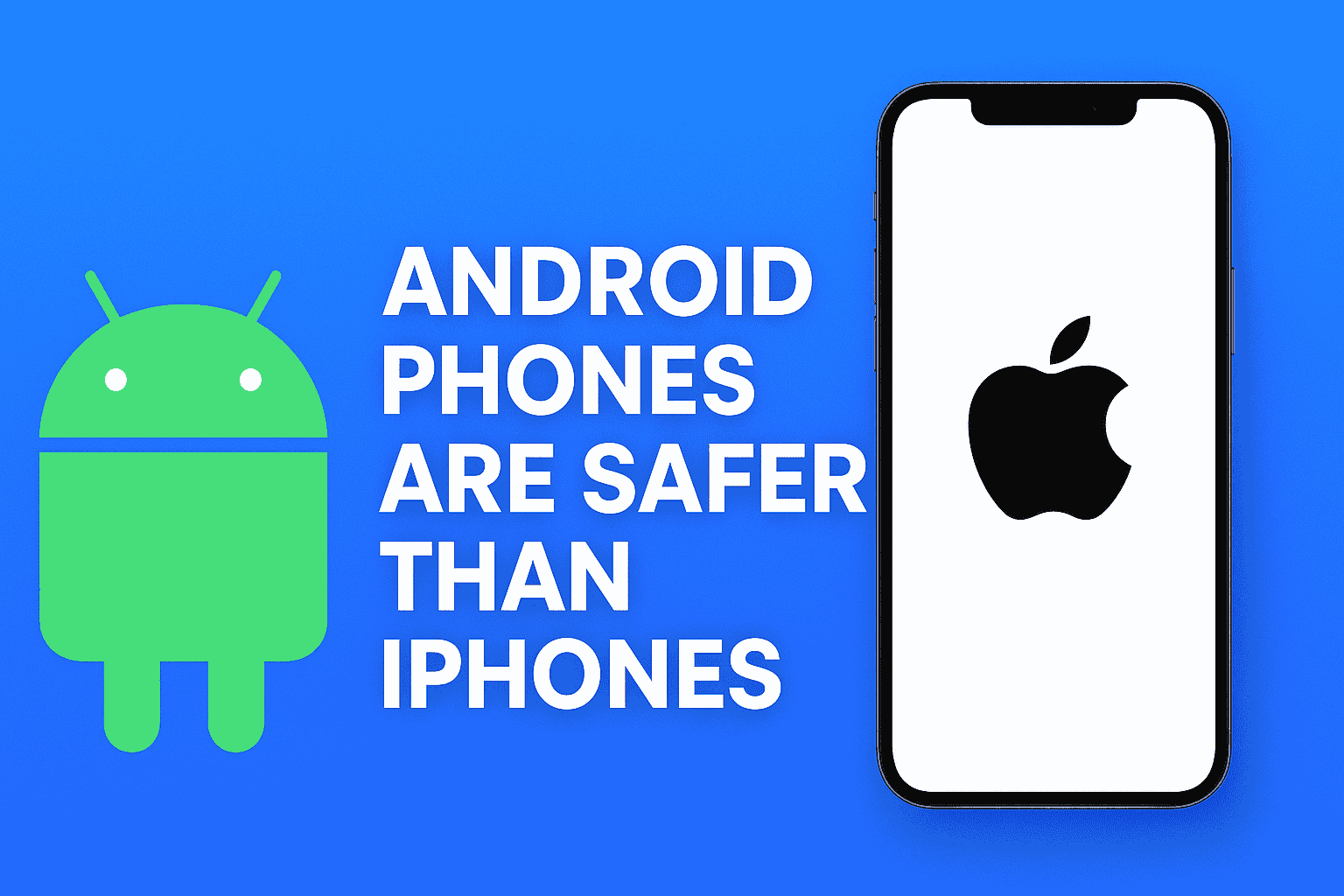Key Takeaway
Google’s latest claim that Android phones offer stronger scam-protection than iPhones looks compelling — especially for fraud-averse users — but the findings require closer inspection before rewriting your next smartphone purchase.
Pros & Cons Summary
✅ Pros:
- Google reports Android users are 58% more likely than iPhone users to have received no scam texts in the past week.
- Android devices (especially Pixel) block over 10 billion suspected malicious calls and messages every month via AI-driven systems.
- Independent research (Counterpoint, Leviathan) supports Android’s broader “scam block” coverage across key security vectors.
❌ Cons:
- The primary report is commissioned by Google, raising questions of partiality and methodology transparency.
- Claims focus heavily on scam-calls/texts rather than full spectrum of phone security (malware, hardware exploits, OS updates).
- For iPhone users, many other security dimensions (app store abuse, hardware/firmware integration) still favour iOS — the claim doesn’t wipe those out.
Lead (What is it?)
Smartphone security is no longer just about malware or unlocked bootloaders—it’s increasingly about protecting users from scam calls, phishing texts and social-engineering attacks. Google recently published a survey and accompanying data which states that Android users face fewer scam texts and calls than iPhone owners. This flips the conventional narrative of iPhones being inherently “safer” thanks to their closed ecosystem. Now, the key question is whether those claims stand up under scrutiny—and how they should influence your next handset decision.
The competition? iPhones vs Android phones, particularly Google’s own Pixel line. If Android is playing catch-up in some security areas, this report suggests it may now be leading in one of the most pervasive smartphone risks.
Deep Evaluation
Design, Build & Display
While the claim centres on software and security, hardware matters. Android phones today vary widely—flagships from Google, Samsung, OnePlus and others often match the build quality of iPhones. What’s relevant here is whether build/design choices affect security: for example, call-screening hardware toggles, dedicated security chips (e.g., Google’s Titan M2) or isolated sensors. Apple’s iPhones continue to use a tightly controlled hardware/firmware stack, which historically has been a security advantage. But from this report, Android’s broader protective net may offset ecosystem-specific hardware perks.
Software / Interface / Features
According to Google, Android’s AI-enhanced protections include: built-in scam call/text filtering, RCS message oversight and on-device threat detection. The report states Android blocks over 10 billion malicious communications per month.
By contrast, the iOS ecosystem remains strong in app-store security and OS patching, but may lag when it comes to volume of proactive scam detection. It’s worth noting the survey covered only scams via calls/texts—not full malware or hardware exploits.
Performance, Benchmarks & Battery
While performance and battery are typical phone review metrics, in this context they are tangential. However: increased security processing (AI filtering, local threat detection) may impact battery or performance on budget devices. Google claims the threat-filtering is efficient and largely transparent to users; there’s no strong independent evidence yet about battery/time trade-offs.
Camera / Special Features
Not applicable directly to the security claim — though features like on-device AI, camera-recognised phishing (e.g., QR filters) or call-screening may tie into the broader security story.
Value for Money
If Android phones truly offer stronger scam-protection, that adds significant value, especially for users in high-risk environments (emerging markets, heavy messaging usage). iPhones often carry premium pricing with security advantages; if that edge is narrowing, the Android value proposition improves. But buyers must assess actual device quality, update support, and ecosystem compatibility—not just marketing claims.
Conclusion / Verdict
Should you buy Android because it’s “safer” than iPhone? If you are particularly concerned about scam texts and call-based fraud, the data supports that Android (especially Pixel) may offer stronger protection out-of-the-box. That said, no phone is perfectly safe, and the metric here is limited to one class of threat. If you prioritise overall ecosystem integration, hardware/firmware alignment and long-term updates, iPhones still hold sway. Ultimately: Android is catching up and maybe even leading in this specific area—but your choice should weigh breadth of security, support and device ecosystem, not just one headline claim.
Rating: 8/10 — Strong claim, promising data, but requires cautious interpretation.
Competitor comparison:
- Better scam-text protection than typical iPhone (per survey)
- Slightly weaker in guaranteed update longevity and hardware-firmware alignment compared to iPhone

